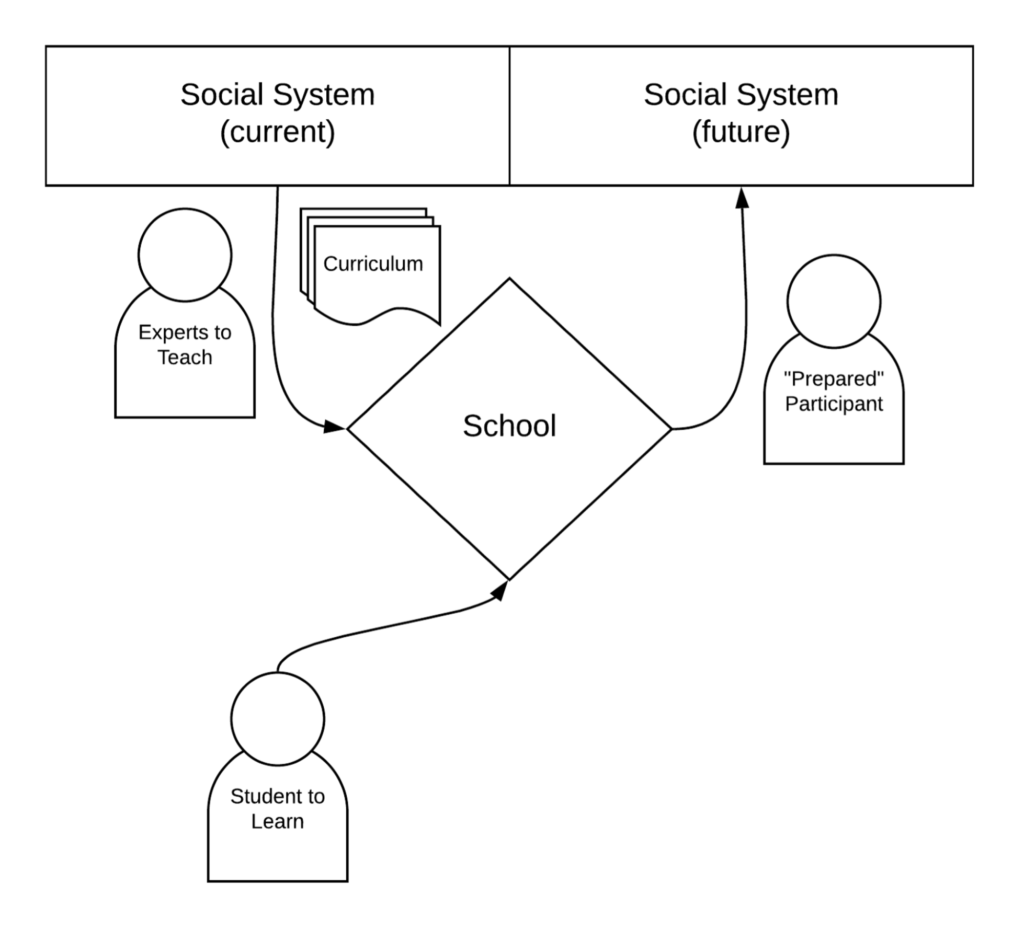Schools are places where actions are taken; individuals speak, and they perform certain tasks. It may seem that what is said and done is a natural phenomenon, but closer reflection shows these are decisions made for a range of largely political, but also professional, reasons. Consider the model of school presented in figure 1.
A school draws its curriculum (which is to be taught) from a social system in its current form; experts from within that social system are also selected to teach the curriculum. The nature of the social system can vary. For public k-12 schools the social system is going to be quite broad. The students who graduate from high schools are (ostensibly) prepared for a wide range of jobs or educational opportunities. Since the late 1990’s, the contents of the curriculum are typically drawn from various collections of standards. Teachers are professionals who are licensed by regulatory agencies within the government and earning a license typically requires an undergraduate degree. Other schools may prepare students for very specific social systems. Nursing programs, for example, are preparing students for work in the health care industry.
The school is generally isolated from the social system, for which it is preparing students, although those schools that include experiential education will cross the boundaries between school and social system. When studying to be teacher, my fellow classmates and I spent time in public schools under the tutelage of working educators and the supervision of education professors. The curriculum is intended to help the students develop the knowledge and skills needed to participate in the social system. For general purpose schools, such as public k-12 schools, the alignment between the curriculum and the students’ ability to participate is open to interpretation. For other schools, such as the nursing students, there is a professional licensing exam; it is the responsibility of the agency sponsoring the exam to ensure the alignment. Those specialized schools go to great effort to ensure their students pass the expected exams, and they can even lose their accreditation if their students do not pass the tests.

One of the challenges for those who design school is ensuring the curriculum will actually prepare the students for the social system. While the curriculum is selected by those with expertise in the social system, and the teachers are probably drawn from those who have succeeded in the social system, those decisions and that expertise has been derived from the current instance of the special system. If it changes in the future, there can be no guarantee the student is any longer prepared for that special system.